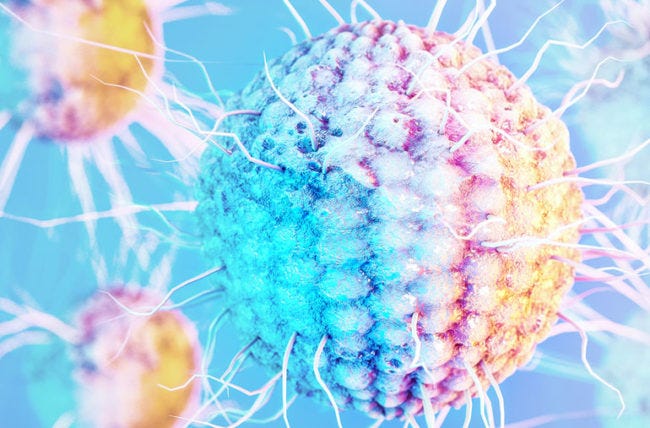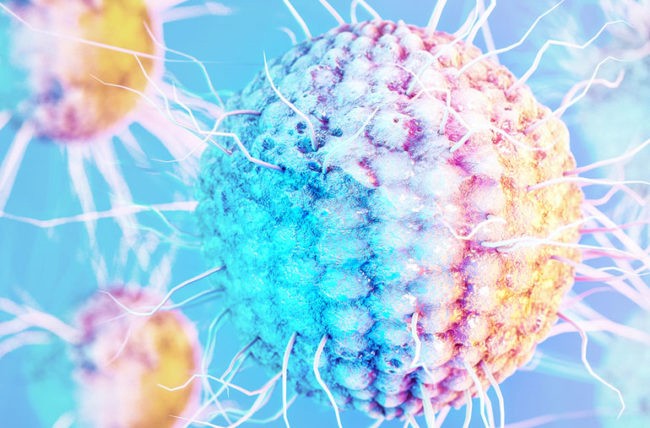Health Transformation Institute (HTI)
Joaquim Cardoso MSc
Founder and Chief Researcher and Editor
December 18, 2022
Cleveland Clinic
August 12, 2022
The truth is doctors and scientists don’t know what causes most types of cancer.
Yes, some lifestyle behaviors, like smoking, can increase your risk.
Hereditary factors sometimes play a role, too, like if breast cancer runs in your family.
And sometimes — in rare circumstances — cancer can be triggered by a virus.
Yes, some lifestyle behaviors, like smoking, can increase your risk. Hereditary factors sometimes play a role, too, like if breast cancer runs in your family.
And sometimes — in rare circumstances — cancer can be triggered by a virus.
It doesn’t happen in most people ….
It doesn’t happen in most people, says medical oncologist Dale Shepard, MD, PhD.
But viruses can cause some cancers, particularly in people with high-risk behavior like:
- Using intravenous drugs and sharing needles.
- Having unprotected sex with multiple partners.
- Choosing not to be vaccinated against certain viruses linked to cancer.

Is cancer a virus?
No. Cancer is not a Virus. Cancer can be the result of a virus altering the genetic code of your cell’s DNA.
And it’s not just any virus that can trigger cancer.
It’s only the viruses that affect certain types of cells in your body. And even then, it’s only in certain cases, explains Dr. Shepard.
How viruses can cause cancer
Here’s how a virus may cause cancer:
- A virus enters a healthy cell.
- It attaches to the cell’s DNA and tries to change the genetic code, instructing how cells in your body grow and are maintained.
- That causes the cells to behave abnormally.
- Some abnormal cells replicate out of control, creating a cancerous tumor.
Most viruses, like those that cause colds and flu, never get to step 4.
“Viruses that infect your lungs and airways, for example, don’t stay in your body for long,” says Dr. Shepard.
“Even if the virus enters your airway cells and attaches to your DNA, your immune system will get rid of those faulty cells quickly.
However, cells in other areas of your body, like your liver, don’t refresh as fast. Infections in those cells can become more dangerous.”

Viruses linked to cancer
There are few viruses that have been linked to cancer. Yet some of them are quite common.
- 1.Epstein-Barr virus (EBV)
- 2.Hepatitis B and C
- 3.Human herpes virus 8 (HHV-8)
- 4.Human immunodeficiency virus (HIV)
- 5.Human papilloma virus (HPV)
1.Epstein-Barr virus (EBV)
This virus is best known for causing mononucleosis (mono). Most people in the U.S. will get EBV at some point, whether or not they actually get sick. EBV will stay in your body for life, usually not causing problems.
However, EBV can sometimes trigger a type of lymphoma, cancer of the lymphatic system.
While there’s no vaccine for the Epstein-Barr virus, you can limit your exposure by not sharing personal items, food, drinks or kissing someone who has it.
2.Hepatitis B and C
These viruses spread through contact with infected blood and having sex with a person who is infected. People with these viruses have hepatitis or an inflamed liver. If the infection lasts a long time, it can permanently damage your liver, called cirrhosis. Cirrhosis can lead to liver cancer.
While medication can help get rid of hepatitis C, medication for hepatitis B doesn’t cure it. It can help lower the chances of liver damage and liver cancer.
There is a vaccine available for hepatitis B.
3.Human herpes virus 8 (HHV-8)
This virus is spread mostly through saliva, but may also be spread through sexual contact or blood. While it doesn’t cause symptoms in most people who have it, it can cause Kaposi sarcoma, especially in people with a weakened immune system.
Practicing safe sex by using condoms and limiting your number of sexual partners can lessen your chance of becoming infected with human herpes virus 8.
4.Human immunodeficiency virus (HIV)
HIV is spread through contact with infected blood and having unprotected sex with a person who is infected. While best known for causing AIDS, HIV infects white blood cells and weakens your immune system. That increases your risk of all kinds of diseases, including cancer.
HIV is linked with Kaposi sarcoma, lymphoma, head and neck cancers, and anal cancer.
There are ways to limit your chances of becoming infected with HIV. Use a condom during sex and don’t share needles used for drugs. There are also HIV prevention medications available.
5.Human papilloma virus (HPV)
This virus can infect your skin or mucous membranes. Sometimes, it causes genital warts. You can catch HPV through sexual activity, and most sexually active people have at least one HPV infection during their lifetime.
Usually, your immune system will get rid of the infection, but sometimes, HPV can cause cervical cancer. It also can cause some head and neck cancers, like throat cancer.
“It’s unclear why these viruses react differently in different people,” says Dr. Shepard. “There’s no way of knowing who might get cancer because of a viral infection.”
HPV vaccines are available, are effective and should be discussed with your doctor to see if you qualify.

How to protect yourself
The best way to protect yourself from virus-induced cancer is to protect yourself from getting the virus in the first place.
That includes avoiding high-risk behaviors like having unprotected sex and sharing needles.
The best way to protect yourself from virus-induced cancer is to protect yourself from getting the virus in the first place.
That includes avoiding high-risk behaviors like having unprotected sex and sharing needles.
Just as important is getting proper vaccinations, stresses Dr. Shepard. Vaccines are available for hepatitis B and HPV.
“These vaccines can significantly decrease your risk of infection, so they really do impact your cancer risk,” he says.
“Although there are no vaccines for hepatitis C and HIV, we now have medications that can minimize the amount of virus in your body if you do get infected.”
“Although there are no vaccines for hepatitis C and HIV, we now have medications that can minimize the amount of virus in your body if you do get infected.”
Originally published at https://health.clevelandclinic.org on August 12, 2022.
Names mentioned
Oncologist Dale Shepard, MD, PhD.












